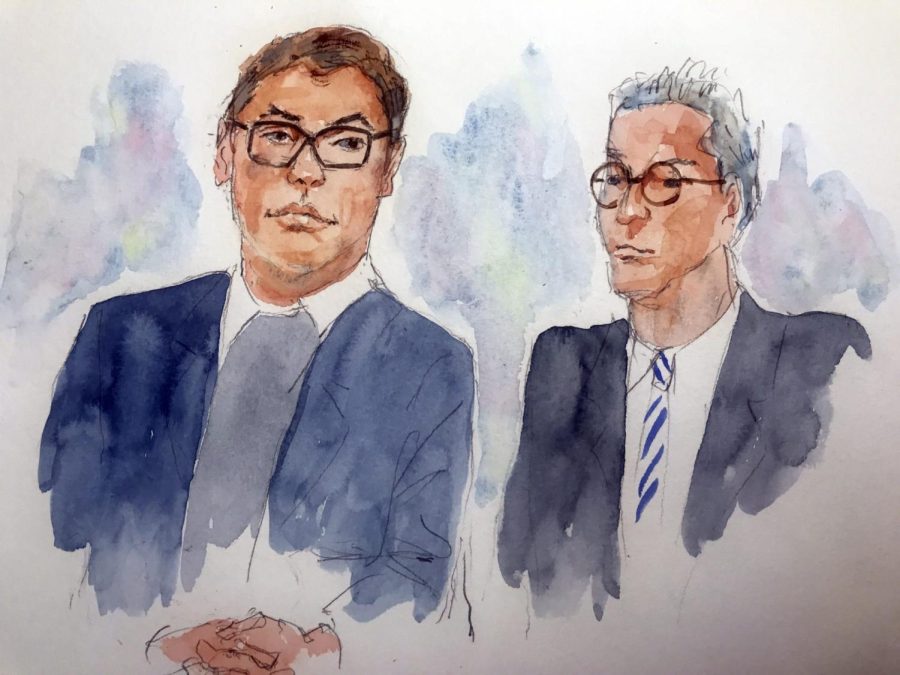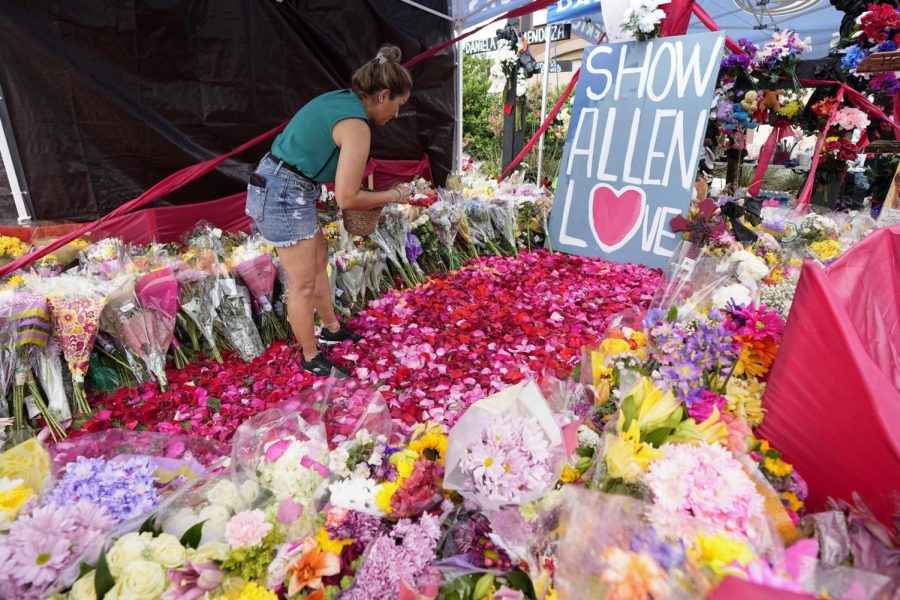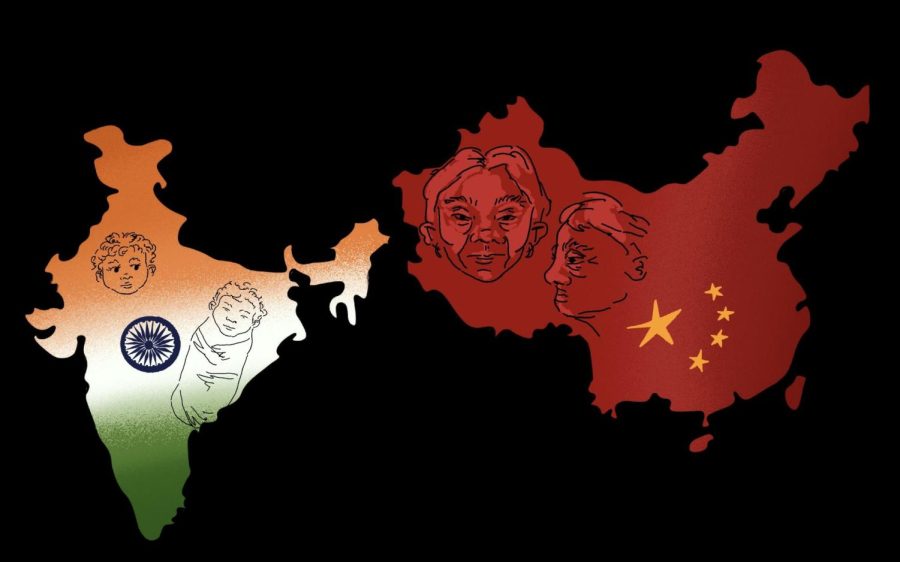In the middle of a hot fall day in Chicago, Nasir Bin Zakaria found it difficult to focus in his meeting. Not far from his desk, a group was singing and laughing in the middle of an English class at the Rohingya Cultural Center. “See? This (is) all that the center is about. This place we can learn from each other,” Zakaria said to a couple of enthusiastic human rights activists sitting with him. They were planning the next demonstration in Chicago against violence toward the Rohingyas, a minority ethnic group that is the target of violent attacks in Myanmar.
In the southeast Asian country, to be born Rohingya is a stigma. The United Nations (UN) considers them one of the most persecuted minorities in the world. Predominantly Muslim, the more than 1 million person community represents only four percent of the population. In contrast, 87.9 percent of the Myanmar population is Buddhist, including its government and militia.
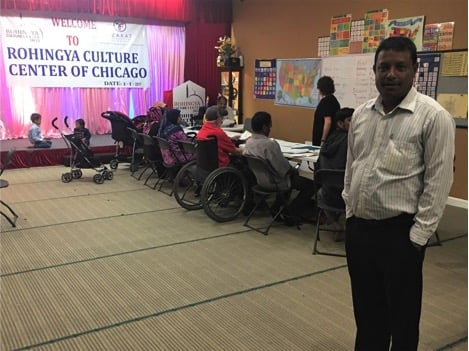
(Rosbelis Quiñonez/The DePaulia)
Myanmar authorities have been denying citizenship to Rohingyas since 1982. The military forces of Myanmar have been harassing and killing Rohingyas. However, the violence has increased since last August, when an armed Rohingya group attacked a Myanmar border police post in Rakhine state, where the majority of the Rohingya population lives.
As a response to the attack, Myanmar troops have killed at least 1,000 Rohingyas in what the UN called “a textbook example of ethnic cleansing.” In a desperate effort to save their own lives, approximately 500,000 Rohingyas fled their homes to live in crowded refugee camps mostly in Bangladesh, according to the UN.
Shailja Sharma, an associate professor in liberal arts and social sciences, is an expert in refugee and forced migration studies. She said that religion is an important explanation of the conflict with the Rohingya community in Myanmar, but it is not the only one.
“Because they are Muslim and Bengali speakers, they are seen as different from the majority of the population which are Buddhist and Burmese speakers,” Sharma said. “It was easy for people in Myanmar to tap into the Islamophobia and target them as Muslim as opposed to Buddhists.”
However, Shamar said that Rohingyas have been living in Myanmar for 200 years since Myanmar, India, Bangladesh and other territories were under the control of the British empire. “To talk of (the Rohingyas) as being from Bangladesh does not even make sense because these borders did not exist 200 years ago. These are borders that came to be in 1946,” she said.
In Shamar’s opinion, the conflict has also political and economic aspects.
“Buddhists, especially the monks who are very powerful in the country, are trying to get people behind them by identifying an enemy, the Rohingyas. So, it’s a kind of political power struggle,” Shamar said. “Rohingyas have been pushed out and that land has been taken over by the majority community in Myanmar, so it’s about land as well. It’s an economic game. It’s a competition for jobs, for land, for support by the state, all of that.”
While Zakaria believes that religion has been used to justify the Myanmar government and military’s intentions to displace Rohingyas, he has his own theory as well.
“China and India are doing business with Myanmar,” he said. “Rakhine state is rich in oil, gas and water for electric power. I believe that (the Myanmar government and the military forces) are doing this for money.”
Zakaria spends at least 70 hours per week at the Rohingya Cultural Center, where his desk is in an open space because he is willing to talk with everyone.
What is happening in Myanmar today makes Zakaria remember his childhood in his home country.
“Myanmar is a dangerous place for a Rohingya boy,” Zakaria said.
The worst was not the blows of the Buddhist teachers but the risk of being forced by the military to work in their camps or to kill insurgents. One day, the soldiers took Zakaria to the jungle.
The boys’ mission in the jungle was to kill Buddhist terrorists, he said. As the soldiers ordered, the Rohingya children walked the whole day. Zakaria recalled how badly his body hurt. At night, he laid down next to the other children and cried quietly.
“If I go with them, I’ll die,” Zakaria remembers thinking to himself.
As soon as the soldiers fell asleep from their drunkenness, Zakaria slowly emerged from the mass of kids.
The jungle was too thick to run. The 14-year-old boy walked as fast as his skinny legs allowed him. He was not crying anymore, but still feared the soldiers would come to kill him. As he walked, the memories of the tigers in his father’s stories came to his mind. Finally, he saw a truck carrying rice. To Zakaria’s luck, the driver was Rohingya and drove him to Zakaria’s uncle’s house.
Zakaria’s parents, afraid for his life, sent him to Bangladesh. He left so soon he could not even say goodbye or thank you.
After spending a few months in Bangladesh and Thailand, he decided to go to Malaysia with a friend who offered him support. For 18 years he lived in Malaysia, but the government denied him refugee status. Zakaria got married in 2009, and the couple had their first daughter in 2011. Now that they had children, Zakaria and his wife decided to leave because as Rohingya, his daughter would not be able to attend school.
The family decided to go to the United States. Their refugee application was denied for five years until finally it was approved in 2012. In August, Zakaria and his family landed in Chicago. Although they were not undocumented anymore, the family had other challenges.
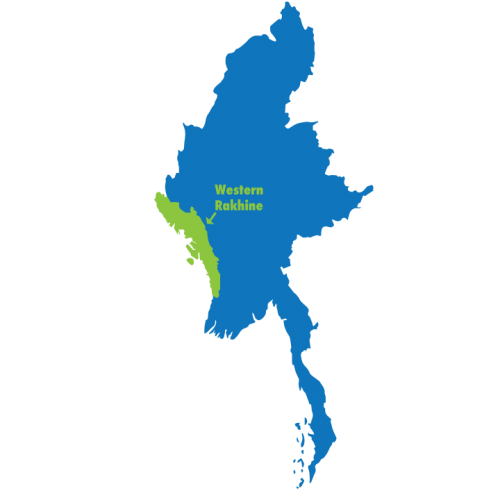
(Victoria Williamson/The DePaulia
Working as a dishwasher in the River City Casino, Zakaria realized that other Rohingya families in Chicago were struggling as much as he and his family because ddin’t speak English well. Zakaria decided they needed a place to meet and help each other.
“Every community has their own center. We didn’t have a place to learn, to be happy, to cry, to pray together,” he said.
Zakaria unsuccessfully knocked on many doors looking for help to start the Rohingya Cultural Center until he found the help he needed in The Zakat Foundation of America. The Muslim nonprofit organization offered the economic support to rent a space in Rogers Park and helped to open the Rohingya Cultural Center a year ago. Today the center offers English classes, translation and social services to nearly 400 Rohingya families.
Laura Toffenetti, a volunteer at the center since May 2016, is amazed by his good job as executive director.
“He carries a huge responsibility and it doesn’t seem to be breaking him. He doesn’t question problems, he just solves them,” Toffenetti said.
Zakaria is grateful for his new home. “I am feeling now what is freedom. It is a beautiful life,” he said. Still, he is dedicated to help the Rohingya community in Chicago and those who are in refugee camps and in Myanmar. For now, Zakaria is working hard to keep the Rohingya Cultural Center’s doors open.



